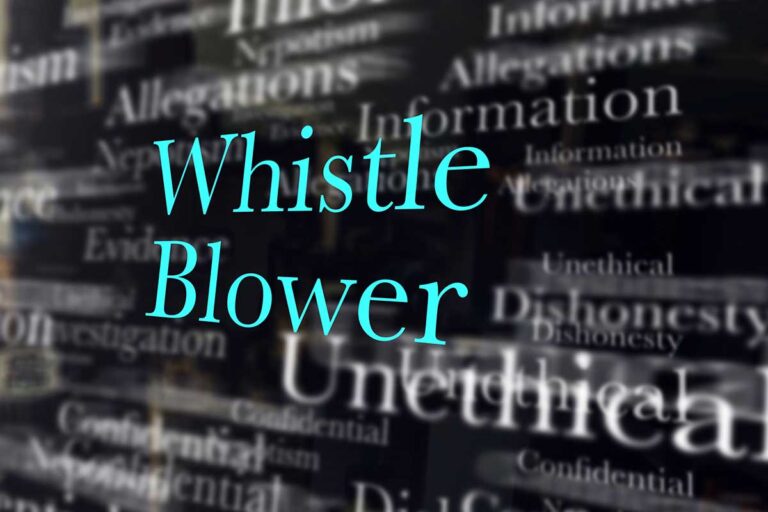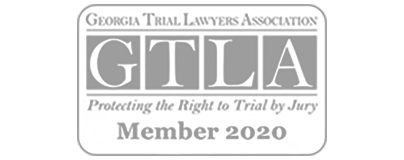Home | LaGrange Personal Injury Lawyer | Qui Tam Whistleblower
LaGrange Qui Tam Whistleblower Lawyer
Whistleblowers are instrumental in exposing fraud and corruption, particularly in government contracting and healthcare fraud. In LaGrange, Georgia, individuals can utilize the state’s False Claims Act to file a qui tam lawsuit, enabling them to not only hold wrongdoers accountable but also receive protections and rewards for their bravery in coming forward.

Unveiling the Power of Qui Tam Whistleblowers in LaGrange, Georgia
This article delves into the nuances of qui tam whistleblower laws in Georgia, including the history of such legislation, key provisions, and the pivotal role whistleblowers play in combating fraud. It also explores the process of filing a qui tam lawsuit in LaGrange, Georgia, from identifying violations to collaborating with authorities to bring cases to light. Furthermore, it discusses the protections and rewards available to qui tam whistleblowers in Georgia, such as confidentiality measures, potential monetary awards, and the significance of legal counsel in navigating the legal landscape.
By shedding light on the rights and responsibilities of LaGrange qui tam whistleblowers in Georgia, this article aims to empower individuals with valuable information about fraud to take action and contribute to a culture of accountability and integrity in the state.
Need To Do The Right Thing? Contact Us For A Free Consultation
Need To Do The Right Thing?
Overview of Qui Tam Whistleblower Laws in LaGrange, GA
In Georgia, Qui Tam whistleblower laws are crucial in the fight against fraud and corruption, allowing individuals with knowledge of fraudulent activities to assist the government in recovering misappropriated funds. These laws enable private citizens, known as relators, to file lawsuits on behalf of the government against those who have defrauded state or federal programs.
History of Qui Tam Legislation in Georgia
Qui Tam provisions have a long history in Georgia, stemming from the state’s False Claims Act enacted in 2007. This legislation incentivizes individuals to report fraud against the government by offering them a share of any financial recoveries resulting from their whistleblowing efforts. Over time, Georgia has enhanced its Qui Tam laws to provide more incentives and protections for whistleblowers.
Key Provisions of Georgia Qui Tam Laws
Georgia’s Qui Tam laws delineate the procedures for filing a whistleblower lawsuit, including requirements for submitting complaints, collecting evidence, and collaborating with state authorities. These laws also outline potential rewards for whistleblowers, such as monetary awards and safeguards against retaliation. Understanding these pivotal provisions enables individuals to navigate the process of reporting fraud and seeking justice for the government.
Role of Whistleblowers in Combatting Fraud
Whistleblowers are essential in combatting fraud in Georgia, acting as the government’s watchdogs. Their firsthand knowledge of fraudulent schemes allows authorities to unearth wrongdoing that might otherwise go unnoticed. By stepping forward with information and initiating Qui Tam lawsuits, whistleblowers safeguard taxpayer dollars, hold wrongdoers accountable, and uphold transparency and integrity in government programs.
Georgia’s Qui Tam whistleblower laws are a potent tool in the ongoing fight against fraud and corruption, empowering individuals to stand against malfeasance and make a meaningful impact on their communities.

LAGRANGE PERSONAL INJURY LAWYER NEAR ME
Process of Filing a Qui Tam Lawsuit in LaGrange, Georgia
Filing a qui tam lawsuit in LaGrange, Georgia involves critical steps to ensure the proper identification of law violations, effective evidence gathering, and compliant submission of complaints. Here is an in-depth overview of the process:
Identifying Potential Violations
The initial step in filing a qui tam lawsuit in LaGrange, Georgia is identifying potential law violations. This often necessitates whistleblowers to possess inside information or evidence of fraudulent activities perpetrated by individuals or entities against the government. Common violations may encompass healthcare fraud, defense contractor fraud, financial fraud, or other misconduct resulting in financial losses for the government.
Whistleblowers are encouraged to meticulously document any evidence related to alleged violations, including emails, financial records, contracts, or other pertinent information supporting their claims.
Gathering Evidence and Documentation
Once potential violations are pinpointed, the subsequent step involves collecting evidence and documentation substantiating the allegations in the qui tam lawsuit. This may involve comprehensive research, securing witness statements, scrutinizing financial records, and compiling any other evidence fortifying claims of fraud or misconduct.
It is imperative for whistleblowers to ensure the accuracy, relevance, and admissibility of the evidence they gather to bolster their case and heighten the chances of a successful outcome.
Submitting a Complaint and Working with Authorities
After amassing sufficient evidence, whistleblowers must formally submit a complaint to the pertinent authorities, typically the Georgia Attorney General’s office or the U.S. Department of Justice. The complaint should delineate specific fraud allegations, furnish supporting evidence, and expound on how the fraudulent activities have harmed the government.
Subsequent to filing a complaint, government authorities will conduct an investigation to ascertain the validity of the claims and decide whether to intervene in the qui tam lawsuit. Whistleblowers may need to cooperate with investigators, provide additional information or testimony, and partake in legal proceedings as necessary.
The process of filing a qui tam lawsuit in Georgia is intricate and demanding, requiring meticulous planning, diligent evidence collection, and strategic collaboration with legal counsel and government authorities. Whistleblowers undertaking this pivotal role play a critical part in combatting fraud, shielding taxpayer dollars, and potentially garnering substantial rewards for their efforts.

Protection and Rewards for Qui Tam Whistleblowers in Georgia
Whistleblowing can be daunting and risky, particularly when it involves exposing fraudulent activities within an organization. Recognizing the significance of encouraging individuals to disclose valuable information, Georgia has implemented various measures to protect and reward qui tam whistleblowers.
Confidentiality and Anti-Retaliation Measures
A primary concern for potential whistleblowers is the fear of retaliation from employers or colleagues. Georgia’s qui tam laws encompass provisions safeguarding whistleblowers from retaliation. Employers are barred from taking adverse actions against employees reporting suspected law violations, and whistleblowers possess the right to seek legal redress if they encounter retaliation.
Moreover, Georgia law permits whistleblowers to file their qui tam lawsuits under seal, preserving the confidentiality of case details during the initial legal phases. This confidentiality shields the whistleblower’s identity and mitigates potential retaliation while the case is under investigation.
Potential Monetary Awards and Compensation
A key incentive for individuals to step forward as whistleblowers is the potential for monetary rewards. In Georgia, successful whistleblowers in qui tam lawsuits may be entitled to a portion of financial recoveries stemming from their information. These rewards can be substantial, often representing a percentage of the total damages recovered in the case.
The precise reward percentage can vary based on factors like the significance of the provided information and the extent of uncovered fraud. Whistleblowers may also qualify for additional compensation to cover legal fees or expenses incurred during the lawsuit.
Role of Legal Counsel and Representation
Navigating the intricacies of a qui tam lawsuit can be challenging, prompting many whistleblowers to seek legal representation for guidance. Proficient qui tam attorneys offer valuable assistance in identifying violations, gathering evidence, and submitting complaints to the appropriate authorities.
Legal counsel aids whistleblowers in understanding their rights, navigating potential retaliation, and negotiating settlements or awards. By collaborating with knowledgeable attorneys, whistleblowers boost their chances of success and ensure their rights are safeguarded throughout the legal process.
Need a Free Consultation? Need a Skilled Attorney?
Free Consultation
Call (770) 771-5130
If you’ve been injured, you need to hire the best legal care to assist you with your claim. Get a FREE consultation today!
Safeguarding Against Fraud, Seeking Justice, and Reaping Rewards
The protection and rewards available to qui tam whistleblowers in Georgia are essential for encouraging individuals to disclose valuable information about fraud and misconduct. By instituting robust anti-retaliation measures, offering potential significant financial rewards, and backing whistleblowers with legal support, Georgia’s qui tam laws promote transparency, accountability, and integrity in both public and private sectors.
The Qui Tam whistleblower laws in LaGrange, Georgia are indispensable tools in the fight against fraud and corruption, empowering individuals to report fraudulent activities harming the government and taxpayers. By providing incentives like confidentiality, protection against retaliation, and the prospect of monetary rewards, Georgia motivates whistleblowers to step forward and play a vital role in holding wrongdoers accountable.
Though filing a Qui Tam lawsuit in Georgia may appear challenging, with appropriate legal counsel and support, whistleblowers can navigate complexities and make a substantial impact. Through their courage and willingness to speak out, whistleblowers ensure taxpayer dollars are protected and justice is served.
As the positive outcomes of LaGrange Qui Tam cases in Georgia and beyond continue to manifest, it is evident that whistleblowers play a pivotal role in upholding integrity and accountability in society. Their actions not only benefit the government and taxpayers but also act as a deterrent to potential wrongdoers. Moving forward, it is imperative to continue supporting and safeguarding whistleblowers as they serve as vital custodians of public trust and accountability.
GET A FREE CASE REVIEW
PRACTICE AREAS
CASE RESULTS
TESTIMONIALS
Randy M. describes a devastating car wreck and how The Jewkes Firm helped him negotiate with the insurance company and obtain a settlement.
AREAS WE SERVE
Frequently Asked Questions?
Do I need a personal injury attorney?
The Jewkes Firm is well-versed in effectively challenging major insurance companies on your behalf to secure the highest settlement permissible by law. Our primary objective is to ensure your optimal recovery. It is only after this point that we assess the worth of your case.
What is the deadline for filing an injury case in Georgia?
The timeframe for filing an injury case, also known as the statute of limitations, can vary significantly. As per OCGA §9-3-33, you are granted a two-year period from the date of your injuries or the passing of a family member to initiate your personal injury claim.
What is the cost to hire a personal injury attorney?
There is no upfront cost associated with hiring a personal injury lawyer. Our fees are based on a percentage of your settlement, meaning you only pay if we successfully recover compensation. Our top priority is ensuring your well-being and helping you return to your normal life.
What damages can you recover from a personal injury?
A personal injury lawyer aims to establish negligence and seek restitution for the harm caused by the liable party. Additionally, you may be entitled to compensation for funeral costs, medical expenses, and income lost if you are a family member of someone who died as a result of an injury.
Free Case Evaluation












